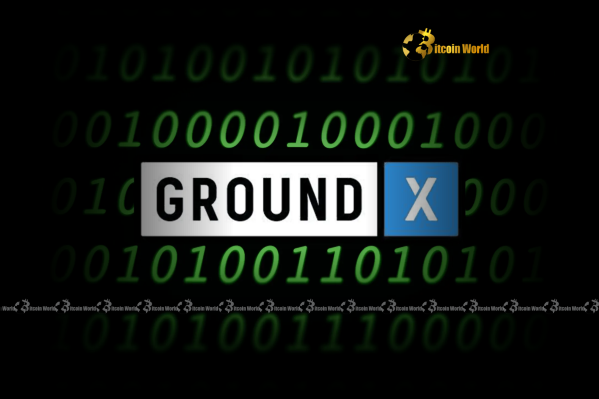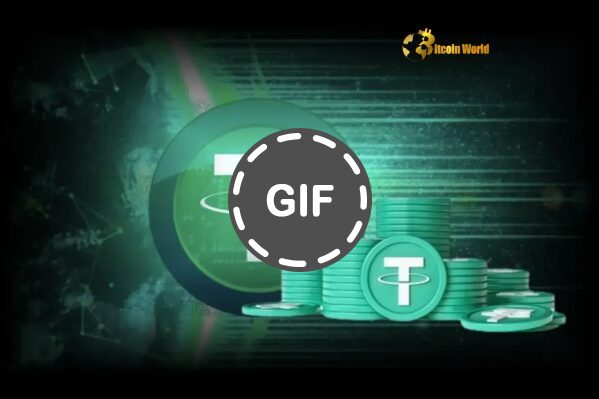BitcoinWorld

Hong Kong Tokenized Bonds: Unlocking a New Era of Digital Finance by 2026
The financial world is abuzz with the news that Hong Kong is poised to make a monumental leap in the digital finance realm. Imagine a future where traditional financial instruments meet the cutting-edge efficiency of blockchain technology. This isn’t a distant dream; it’s becoming a reality as Hong Kong prepares to formalize Hong Kong tokenized bonds issuance, setting a precedent for global financial innovation. This strategic move solidifies the city’s ambition to become a leading hub for digital assets, promising a new era of efficiency, transparency, and accessibility in capital markets.
The Groundbreaking Move Towards Hong Kong Tokenized Bonds
Hong Kong, long recognized as a global financial powerhouse, is taking decisive steps to integrate blockchain technology into its core financial infrastructure. Financial Services and the Treasury Secretary Christopher Hui recently confirmed the government’s ambitious plan to formalize the issuance of tokenized bonds as a regular practice, targeting the 2025–26 budget cycle. This announcement, reported by JinSe Finance, marks a significant milestone in the city’s journey towards embracing digital finance.
But what exactly are tokenized bonds? Simply put, they are traditional bonds whose ownership and associated rights are represented by digital tokens on a blockchain. This innovative approach leverages the security, transparency, and immutability of distributed ledger technology (DLT) to streamline the entire bond lifecycle, from issuance and trading to settlement and redemption.
The Hong Kong Monetary Authority (HKMA) has been at the forefront of this exploration, having already successfully conducted two pilot issuances of government green bonds using tokenization. These initial ventures, including a HK$800 million (approximately US$102 million) tokenized green bond in February 2023, demonstrated the feasibility and benefits of the technology. With the HKMA now preparing for a third issuance, the groundwork is clearly being laid for a comprehensive and robust framework. This progressive stance signals Hong Kong’s commitment not just to experimentation, but to the full integration of digital assets into its financial ecosystem.
Why Are Tokenized Bonds a Game-Changer for Finance?
The shift towards tokenized bonds isn’t just a technological upgrade; it represents a fundamental rethinking of how financial instruments are issued, managed, and traded. The benefits are multi-faceted and compelling, promising to unlock new efficiencies and opportunities for both issuers and investors. Let’s explore some of the key advantages:
- Enhanced Efficiency and Speed: By automating many of the manual processes involved in traditional bond issuance and settlement, tokenization can drastically reduce transaction times and operational costs. Smart contracts can automate coupon payments and redemptions, minimizing human error and administrative overhead.
- Increased Transparency: Blockchain’s immutable ledger provides a clear, auditable record of all transactions. This transparency can build greater trust among market participants and simplify regulatory oversight.
- Improved Liquidity: Tokenization can enable fractional ownership of bonds, making them accessible to a wider range of investors, including retail participants who might otherwise be excluded from large-denomination debt markets. This broader investor base can lead to increased trading activity and liquidity.
- Reduced Intermediary Costs: By leveraging a decentralized network, the need for multiple intermediaries in the bond issuance and trading process can be minimized, leading to lower fees and more direct interactions between parties.
- Greater Accessibility: Lower entry barriers and simplified processes can democratize access to bond markets, allowing smaller investors to participate and diversifying investment portfolios.
These advantages collectively paint a picture of a more agile, inclusive, and cost-effective bond market, which is precisely what Hong Kong aims to achieve with its formalization efforts.
Navigating the Regulatory Landscape: Balancing Innovation and Protection for Digital Assets
The formalization of Hong Kong tokenized bonds is not merely about technological adoption; it’s intrinsically linked to establishing a robust and comprehensive regulatory framework. As Secretary Hui highlighted, once legislation is completed, the regulatory framework will fully cover the digital asset industry. This is a critical undertaking that seeks to strike a delicate balance:
- Risk Management: Ensuring that the inherent risks associated with digital assets, such as cybersecurity threats, market volatility, and operational risks, are adequately identified, assessed, and mitigated. This includes establishing clear standards for platform security and data integrity.
- Investor Protection: Safeguarding the interests of investors, particularly retail investors, from potential fraud, market manipulation, and other illicit activities. This involves developing robust disclosure requirements, anti-money laundering (AML) and counter-terrorist financing (CTF) measures, and clear dispute resolution mechanisms.
- Market Innovation: Fostering an environment that encourages technological advancement and new business models within the digital asset space, without stifling creativity through overly restrictive regulations. The goal is to provide regulatory clarity that allows legitimate businesses to thrive.
This holistic approach to regulation is crucial for building confidence and attracting both domestic and international participants to Hong Kong’s burgeoning digital asset market. The city aims to create a regulatory sandbox that is both secure and conducive to growth, distinguishing itself from jurisdictions with less defined or more prohibitive stances on digital assets.
Here’s a simplified comparison of key aspects between traditional and tokenized bonds:
| Feature | Traditional Bonds | Tokenized Bonds |
|---|---|---|
| Issuance & Transfer | Manual, paper-based or centralized digital registries | Automated via smart contracts on blockchain |
| Settlement Time | T+2 or T+3 (days) | Near-instant (minutes/seconds) |
| Intermediaries | Numerous (brokers, custodians, clearing houses) | Fewer, potentially direct peer-to-peer |
| Accessibility | Often high minimums, limited to institutional investors | Fractional ownership, broader investor base (retail) |
| Transparency | Centralized records, less real-time visibility | Immutable, transparent ledger on blockchain |
| Costs | Higher operational and intermediary fees | Potentially lower transaction and administrative costs |
What Does This Mean for the Future of Finance in Hong Kong?
The formalization of Hong Kong tokenized bonds issuance is more than just a regulatory update; it’s a powerful statement about the city’s strategic vision for its financial future. By proactively integrating digital assets into its mainstream financial system, Hong Kong is positioning itself as a global leader in the evolving landscape of digital finance. This move could have several profound implications:
- Strengthening Hong Kong’s Position: It reinforces Hong Kong’s status as an international financial center, attracting innovative fintech companies, blockchain developers, and global investors seeking a regulated and forward-thinking environment for digital assets.
- Catalyst for Broader Digital Asset Adoption: The success of tokenized bonds could pave the way for the tokenization of other asset classes, from real estate and equities to intellectual property, creating entirely new markets and investment opportunities.
- Increased Capital Inflows: A clear and supportive regulatory framework for digital assets is likely to attract significant capital, both from traditional financial institutions looking to innovate and from crypto-native firms seeking legitimate operational bases.
- Enhanced Competitiveness: As other jurisdictions grapple with how to regulate digital assets, Hong Kong’s proactive and balanced approach gives it a competitive edge, potentially drawing business away from less certain markets.
This initiative underscores Hong Kong’s commitment to staying at the cutting edge of financial innovation while upholding its reputation for regulatory prudence and investor protection. It’s a bold step towards a more interconnected, efficient, and digitally-driven global financial system.
In conclusion, Hong Kong’s decision to formalize tokenized bond issuance by 2025-26 is a landmark development that signals a profound shift in the global financial landscape. By meticulously crafting a regulatory framework that balances innovation with robust risk management and investor protection, Hong Kong is not merely adapting to the digital age but actively shaping its future. This pioneering move will undoubtedly serve as a blueprint for other jurisdictions, solidifying Hong Kong’s position as a vibrant and forward-thinking hub for digital finance and ushering in an exciting new chapter for capital markets worldwide.
Frequently Asked Questions (FAQs)
Q1: What are tokenized bonds?
A1: Tokenized bonds are traditional bonds whose ownership and associated rights are digitally represented on a blockchain, leveraging distributed ledger technology for enhanced efficiency, transparency, and liquidity.
Q2: When will Hong Kong formalize tokenized bond issuance?
A2: Hong Kong plans to formalize tokenized bond issuance as a regular practice in the 2025–26 budget cycle, with legislation expected to be completed to fully cover the digital asset industry.
Q3: What benefits do tokenized bonds offer over traditional bonds?
A3: Tokenized bonds offer several benefits, including increased efficiency, faster settlement times, enhanced transparency, improved liquidity through fractional ownership, reduced intermediary costs, and greater accessibility for a wider range of investors.
Q4: How is Hong Kong balancing innovation with risk in digital assets?
A4: Hong Kong’s regulatory framework for digital assets aims to balance risk management, investor protection, and market innovation. This involves establishing clear standards for security, implementing robust AML/CTF measures, and fostering an environment conducive to technological advancement.
Q5: What is the Hong Kong Monetary Authority’s role in this initiative?
A5: The Hong Kong Monetary Authority (HKMA) has been actively involved in piloting tokenized bond issuances, successfully conducting two previous green bond issuances, and is currently preparing for a third, laying the groundwork for the formalization.
Q6: How will this impact Hong Kong’s position as a financial hub?
A6: This move is expected to strengthen Hong Kong’s position as an international financial center and a leading hub for digital assets, attracting fintech companies, blockchain developers, and global investors seeking a regulated and innovative environment.
If you found this article insightful, please consider sharing it with your network! Your support helps us bring more critical insights into the evolving world of digital finance. Share on social media and let’s spread the word about Hong Kong’s pioneering steps!
To learn more about the latest crypto market trends, explore our article on key developments shaping digital assets institutional adoption.
This post Hong Kong Tokenized Bonds: Unlocking a New Era of Digital Finance by 2026 first appeared on BitcoinWorld and is written by Editorial Team





